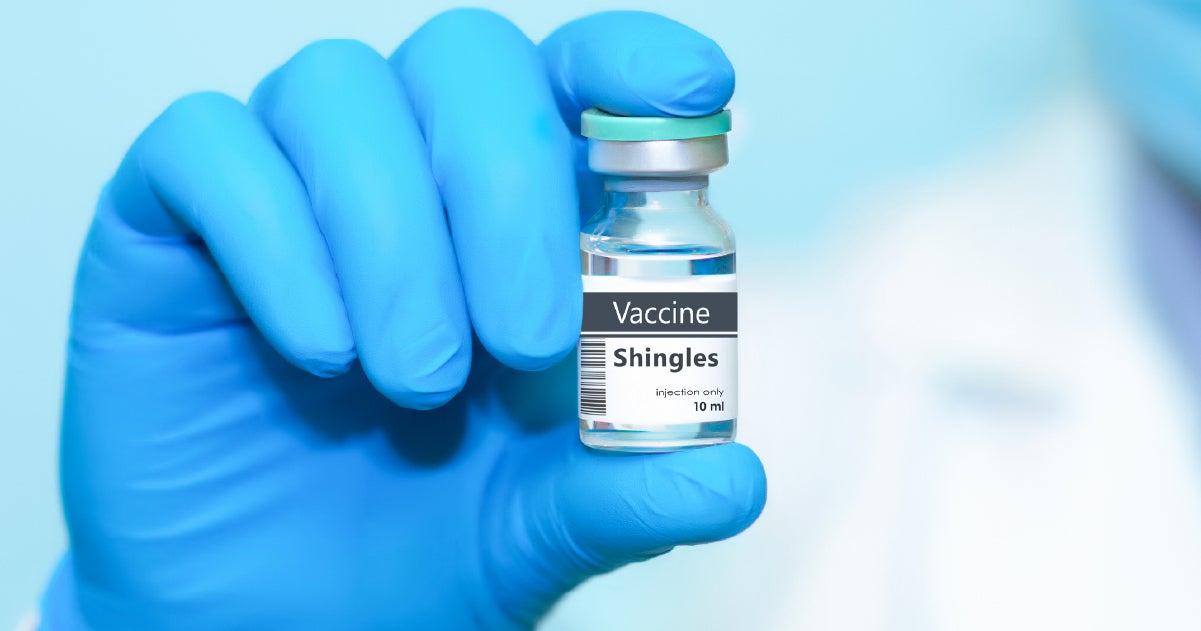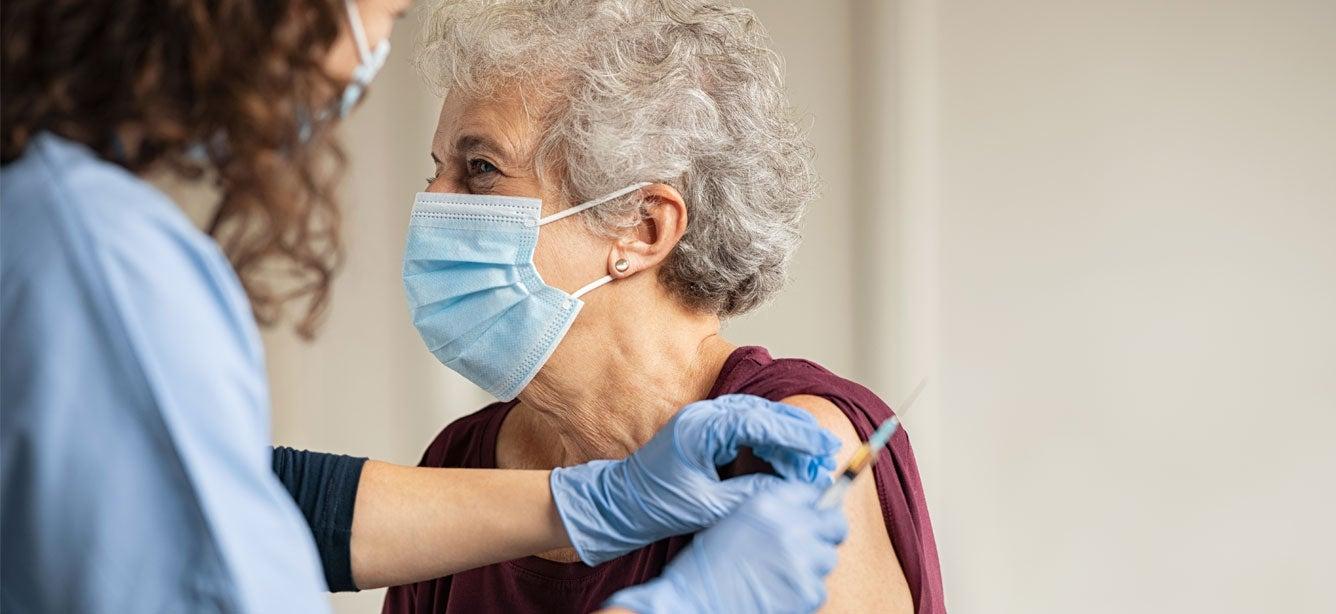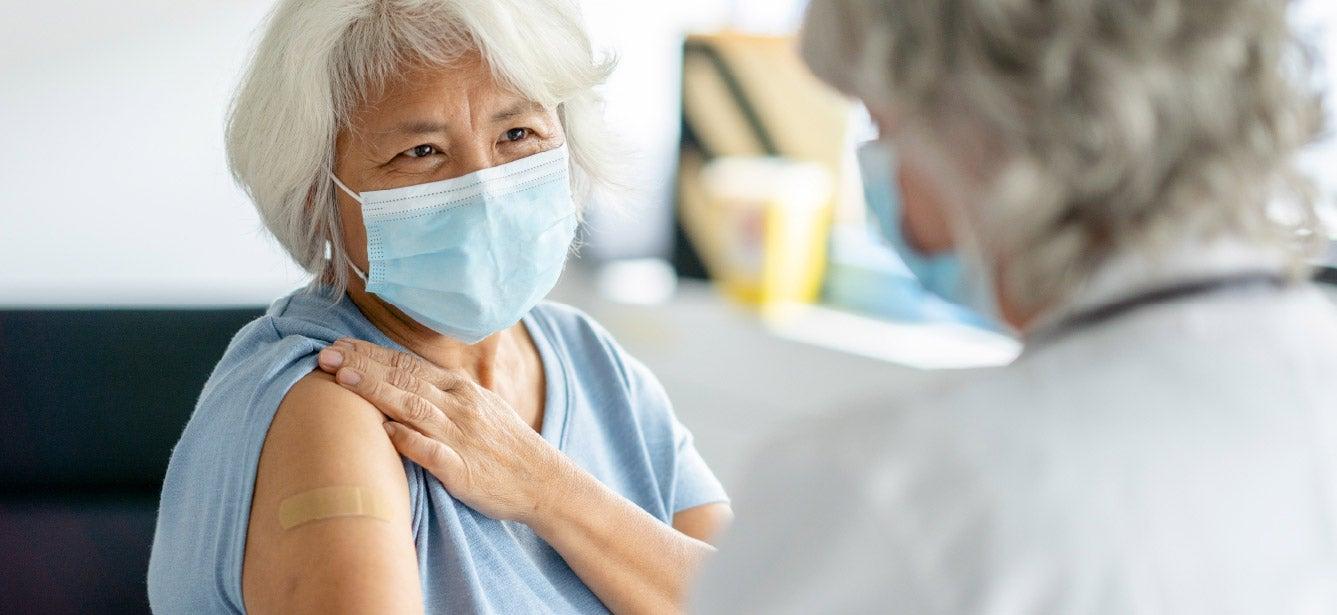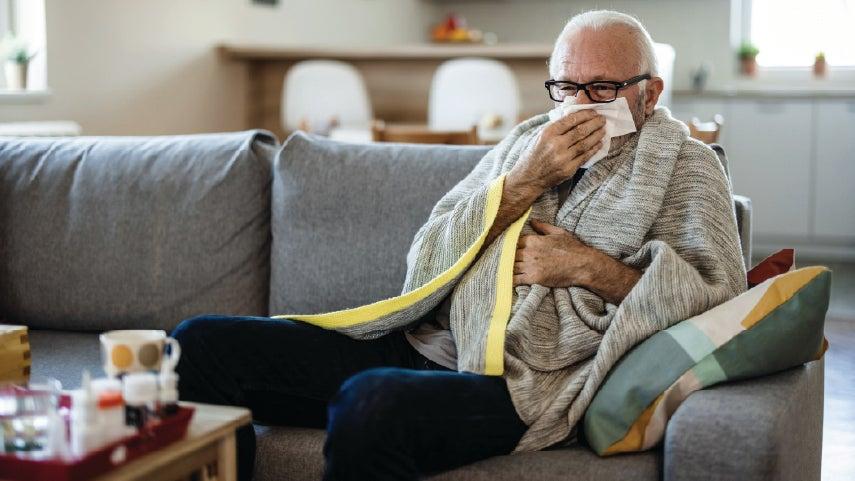Shingles Vaccine for Older Adults: Cost, Coverage, and What You Need to Know
5 min read
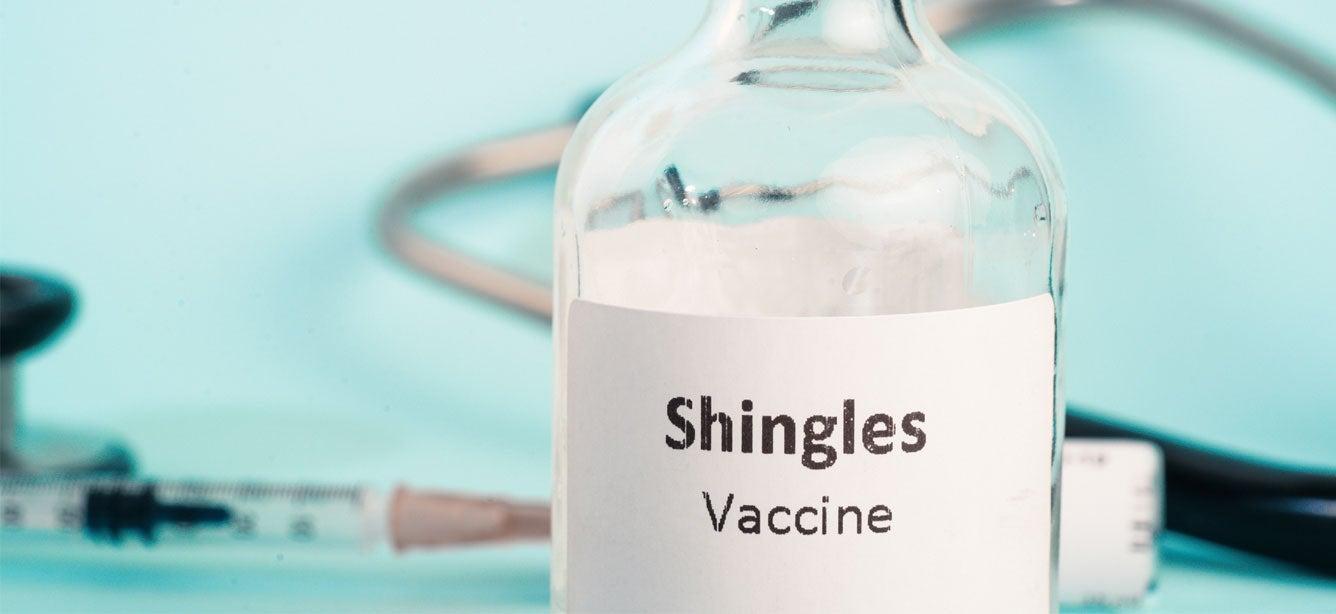
Related Topics
Chances are you’ve heard of shingles—or maybe you know someone who was unfortunate enough to experience it. This distressing condition affects 1 out of 3 Americans in their lifetime—and an estimated 1 million people each year.1
For older adults, shingles is a serious health concern. If you haven’t yet received the shingles vaccine series, you may have questions such as: Is there a free shingles vaccine for seniors? How long does the shingles vaccine last? Will I have a reaction to the shingles vaccine? Learning all you can about shingles is the first step to protecting yourself and staying healthy.
What is shingles?
Shingles is a viral infection that brings on a painful skin rash. It's caused by the varicella zoster virus, the same virus responsible for chickenpox. Even if you had chickenpox as a child, the varicella zoster virus may still lie dormant in your nerve cells. In most cases, it stays inactive. However, in about one-third of adults, the virus reactivates. Most people who develop shingles will only have it one time—but it is possible to get it more than once.
What are shingles symptoms and treatment?
Early signs of shingles include sensitive and/or tingling skin followed by a red, blistery rash. The blisters tend to scab over in seven to 10 days and are fully healed by two to four weeks. Headache, fever/chills, and an upset stomach are other common symptoms of shingles. The pain from this infection can be severe and debilitating and can interfere with daily life.
Does shingles go away? There’s no known cure for shingles. Treatment usually involves managing the pain with topical creams, steroids, and cold compresses. In some cases, anti-viral medications are used to ease symptoms and prevent nerve damage. While shingles typically runs its course within a few weeks, roughly 10-18% of people experience long-term nerve pain called postherpetic neuralgia (PHN). Other complications of shingles include:
- Pneumonia
- Hearing problems
- Encephalitis (brain inflammation)
- Bacterial infection
- Death
The only way to prevent shingles is through vaccination with Shingrix (recombinant zoster vaccine). This two-dose shingles vaccine is found to be more than 90% effective at preventing shingles as well as long-term nerve pain.
Note: Shingrix replaced the prior shingles vaccine Zostavax. Shingrix was first approved in October 2017 and became the only shingles vaccine available in the U.S. once Zostavax was discontinued in November 2020. If you had the Zostavax vaccine previously, you should still get the Shingrix shot. Talk to your health care provider about the best timing to get Shingrix.
"I’d heard stories about how bad shingles hurts, and honestly, I’m a wimp when it comes to pain. So I didn’t wait. I rolled up my sleeve," writes Amy-Sarah Marshall in UVA Health's blog, Healthy Balance. "Getting the shingles vaccine is easy, quick, and cheap. You can get it without an appointment at most major pharmacies. And it’s covered by most insurance plans. Next time you go grocery shopping, take a few minutes and get the shot. That’s all you have to do."
At what age should you get the shingles vaccine?
You might be wondering about the age range for the shingles vaccine. Older adults are at higher risk for developing shingles, since our bodies have more trouble fighting off infections as we age. In fact, adults over age 60 represent approximately half of all shingles cases in the U.S.
The Centers for Disease Control and Prevention (CDC) recommends that healthy adults age 50 years and older get two doses of Shingrix separated by two to six months. Vaccination is also recommended for some adults age 19 and older who have compromised immune systems. People who are immunocompromised can receive their second dose of Shingrix one to two months after the first dose.
Shingrix is available in pharmacies and physicians’ offices and, like many vaccines, is delivered as a shot in your upper arm. If you’re wondering, “Should I get the shingles vaccine at age 75?”, the answer is yes. There is no maximum age for receiving the two-dose shingles vaccine.
Should you get the shingles vaccine series after getting shingles? Yes, the two-dose Shingrix regimen is recommended by the CDC if you’ve had shingles or you received the Zostavax vaccine. You should also get vaccinated even if you’re not sure whether you had chickenpox as a child.
How effective is the shingles vaccine?
According to CDC, the shingles vaccine was 97% effective in preventing shingles in healthy adults age 50 to 69. In adults age 70 and older, Shingrix was 91% effective.2
The shingles vaccine has also been linked with a reduced risk of dementia and a reduced risk of heart attack and stroke.
How long does the two-dose shingles vaccine last? Studies show that protection remains higher than 85% within the first four years of vaccination. In people age 70 and older with healthy immune systems, immunity from Shingrix stayed high throughout the seven years after getting vaccinated. While protection from the shingles vaccine gradually wears off over the first five to eight years, there is currently no approved shingles booster available.
Will I have a reaction to the shingles vaccine?
Many people wonder, “Does the shingles vaccine have side effects?” Since the shingles vaccine triggers a robust immune system response, you may experience some temporary side effects that go away within two to three days. Most side effects are mild. Keep in mind that shingles can lead to complications such as a lifetime of nerve pain—so these short-term effects are a small price to pay for protection.
Shingles vaccine side effects may include:
- Sore arm
- Fatigue, headache, body aches, stomach pain, or nausea
- Redness and swelling at the injection site
Are there reasons why you shouldn't get the shingles vaccine?
Although Shingrix is considered safe and effective, there is a small subset of people who should avoid it. You should not get the shingles vaccine series if you:
- Have an active shingles infection
- Have tested negative for immunity to varicella zoster virus (in that case, you should get the chickenpox vaccine)
- Have experienced a severe allergic reaction to Shingrix or any component of this vaccine
Additionally, if you’re sick with a moderate to severe illness (including having a temperature of 101.3°F or higher), it’s best to wait until you recover before you get the shingles shot.
How much is the shingles vaccine? Is there a free shingles vaccine for seniors?
Without insurance, the shingles vaccine is expensive—about $400 for the two-dose series, or $200 per dose.
But if you have Medicare, you’re in luck: it covers a wide range of preventive services, including Shingrix. There is no cost-sharing for all adult vaccines covered under Part D that are recommended by the Advisory Committee on Immunization Practices (ACIP)—including Shingrix. This means you should pay nothing out of pocket when you receive your vaccination. If you don’t have Medicare, call your health insurance plan in advance to see if they will cover the Shingrix vaccine.
Don’t wait—schedule your shingles vaccine today
If you’ve put off your shingles vaccination, now is the time to schedule it with your health care provider or local pharmacy.
Dorothea Vafiadis, Senior Director of NCOA's Center for Healthy Aging, encourages all eligible older adults to roll up their sleeves for the Shingrix shot.
"Shingles is a very unpleasant condition, and you can avoid it with the simple act of getting vaccinated,” she said. “The shot is safe and well-tolerated by most people, and it’s a smart move to protect your health.”
Sources
1. Centers For Disease Control and Prevention (CDC). About Shingles (Herpes Zoster). Updated January 17, 2025. Found on the internet at https://www.cdc.gov/shingles/vaccines/index.html
2. Centers For Disease Control and Prevention (CDC). Shingles Vaccination. Updated August 19, 2025. Found on the internet at https://www.cdc.gov/shingles/vaccines/index.html
